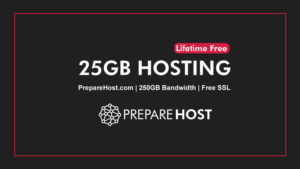Table of Contents
ToggleHello friends and today in this Article, I have collected some information on how to choose domain and hosts for the website.
So in the first part, we’ll be reading about choosing the perfect domain and below that about choosing the perfect hosts for your need.
How to Choose The Right Domain Extension
Now that the time has arrived, you need to choose which TLD is right for your domain.While there can’t be any identical domains, there can be two versions of the same domain with different extensions.For example, Google.com is taken, but Google.biz could also be purchased.
This is why some corporations can prefer to purchase all the accessible extensions of their domain, in order to prevent someone else from using their name with a different extension.While purchasing other extensions doesn’t necessarily gain you more traffic, according to Moz, you can purchase some of the related extensions and redirect them to your site for brand protection purposes.
When you’re selecting a website extension, consider these factors:
1. The Purpose of Your Site
This is perhaps the most important thing to consider.When you’re acting on beginning a web log, you’ll need to consider what your ultimate method of income will be when things are all up and running.
If you’re running an online business, then a .com or .biz could be worthwhile. If the blog is for an organization, then you have .org extensions which could be a viable option.
2. Don’t Forget Local TLDs
With the increase of native SEO, you could also consider targeting a specific geographical area that you’re in.There ar over two hundred totally different country code TLDs, so you should be able to find something that matches your location.Common ones include .us for the United States, co.uk for the United Kingdom, and .ca for Canada.
3. Don’t Forget About SEO
Search engine optimization is a significant topic for you if your web site is hoping to rank well.Despite some info that may tell you a .com domain has the simplest likelihood of ranking, this is only the case because it’s the most popular extension. Common choices For TLDs (And once to Use Them)
There are over 400 different extensions available, so we won’t be able to cover them all here, but let’s take a look at the most popular options, and when they’re best used as an extension for your domain:
.com (commercial) – this is often the foremost widespread extension and originally stood for business sites, however, currently, it’s used for all types of internet sites.
.net (network) – Originally supposed for internetworked websites, this domain extension is employed for a good sort of functions these days. This is an honest backup if your ideal alternative is taken within the .com extension. It’s conjointly smart for technical school corporations as “net” implies technology and networking.
.org (organization) – meant for organizations.Best used if your web site is for a noncommercial company. Not the ideal solution if you’re a business as it sends mixed messages.
.edu (education) – This one isn’t usually accessible for public registration, and is instead used by colleges and educational institutions.
.info (information) – this is often best used if your web site is only there for determination or as an info {of knowledge|of data|of info}.If you’re not merchandising something, then this domain could work well.
.biz (business) – another to .com domains for businesses, but it does have some bad connotations because of spammy sites using it.
.me (personal) – This extension is usually used for private websites or blogs that don’t have any business intent.These are the foremost common choices, but they are a fraction of the total options.
Other selections like .name, .pro, tv, and plenty of additional are used for terribly specific businesses or industries.These are only a viable option if you have a very focused business model, or your website is focused on an individual (in the case of the “me” and “name” extensions).
Hosting
Great hosting boils right down to the three S’s: speed, support, and security,” said Adam Berry, digital director at Wingard creative. Nasdaq’s Simon Ball, head of digital media services at Nasdaq Corporate Solutions, said scalability is also critical.
“You want the flexibility to rapidly scale your web site as your audience grows and therefore the resiliency to handle unforeseen bursts of high traffic,” said Ball.Hosting services are available in a wide range of prices ranging from a few dollars a month to thousands of dollars.
If you are a tiny business obtaining started, you can probably do quite well with a cloud, virtual private server, or managed service ranging from $10 to $100 (roughly £8 to £80 or AU$15 to AU$130) per month.
Providers of managed service can check that your system is organized properly for your load, keep an eye on security issues, patch your software as needed and manage backups among other tasks.Estimate the number of traffic you expect (and be honest with yourself).
Hosting suppliers typically charge supported storage and information measure usage. may be a life of what percentage bytes you serve over a given amount. If you expect solely some people to go to your web site, information measure are going to be low.
But if you are suddenly featured at the highest of Google or your product goes infective agent you’ll expect information measure necessities to surge. As long as you’re honest with yourself, there’s not much of a risk. For example, if you plan to only serve a few pages to a few local customers, you’ll never run afoul of any limits.
But if you recognize that you are very building a web site that may stress low-end shared servers, make sure to choose an ardent or cloud-based server.
That’s next.
Understand server types.
The terribly least expensive hosting is offered on shared servers, where one box may run hundreds of websites. The performance of your web site depends on the load all the opposite sites square measure putting on the host.
Shared hosting additionally limits your access to the server’s capabilities, typically limiting you to uploading files via FTP or SFTP, preventing shell access, restricting what programs you can runon the service and limiting the number of info access your web site will perform. The next tier up is VPS (for virtual private server), which is a full instance of a virtual machine (a simulated computer) running on a box.
Usually, hosting suppliers run several VPS instances on one box, however, performance is sort of perpetually higher than base-level shared services. If you employ a VPS, you should be familiar with basic server maintenance and management. If you do not need to share performance with alternative sites, consider a dedicated server, a physical box that’s rented to you.
It’s the same as having a server sitting behind your table, except it’s placed during a service provider’s knowledge center. Only those with system management skills need apply. Cloud servers may be a better choice. They usually run on the enormous public clouds, like Amazon Web Services or Microsoft Azure.
Service suppliers will build no matter configuration suits the wants of their customers. The big good thing about cloud servers is that you simply will scale seamlessly. If you wish to be ready to handle that massive traffic surge, simply pay your supplier extra money. Nothing needs to be moved or rebuilt.
Talking more about using which hosting server and domains, we’ll we have an article on that too, you can check them as well talking about sites are present which helps you buy easy domains and also hosting such a GoDaddy, currently, it’s one of the very popular domain and hosting site around the globe. For bloggers it’s better to invest well at the beginning instead of using free hosting and domain are must be bought as per your need and type of articles as we have also mentioned some of the popular domains extensions

Hello, I’ve been a creative designer and writer since 2015. I’ve also been lucky enough to work for the many reputed companies where I manage the Designs and Content.








